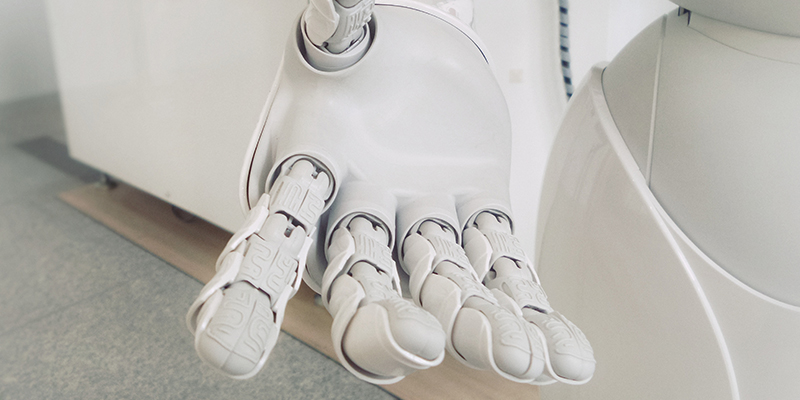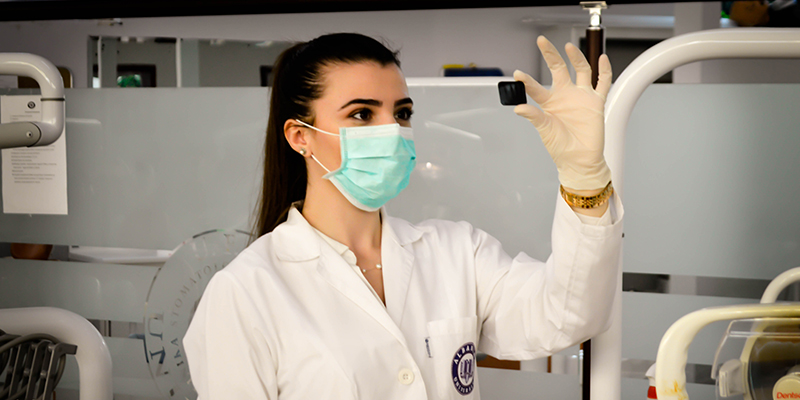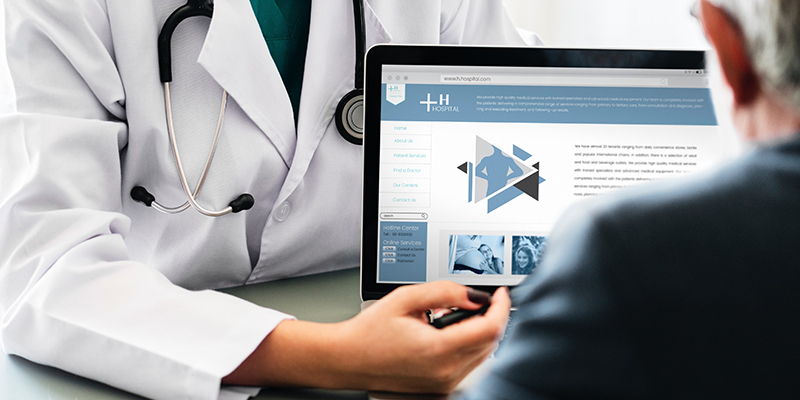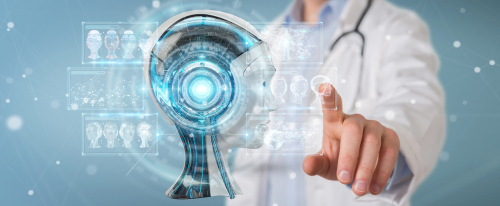Artificial Intelligence (AI) is the next big trend in software making inroads into services that traditionally have been delivered by human professionals without software assistance. This new technology goes a step farther than computer automation to help professionals throughout the medical industry deliver better outcomes to their patients. By taking software solutions to the next step beyond automation, AI tools will help the medical community make better diagnoses and improve the effectiveness of treatments. Before we cover these new possibilities that AI is creating in healthcare, though, we should first define what AI is and isn’t.
What Is Artificial Intelligence?

AI has become a buzzword that we often hear today, but it’s used for a number of different things. Many media stories treat AI as any software tool that can perform a task that a human had done in the past. This is sometimes accurate, and sometimes it isn’t. For example, an automated email responder that sends a message while you’re on vacation isn’t AI, but a chatbot that can guide you through a purchase or application by asking questions and interpreting your answers is a good example of artificial intelligence.
Another type of AI that is often discussed in the healthcare industry is machine learning. This is a technology that takes data analysis a step further. It forms conclusions based on patterns in large amounts of data using neural networks that mimic the way the human brain learns. An example is an AI tool that helps doctors interpret whether an X-ray shows the initial stages of cancer based on the X-rays of thousands of previous patients that were diagnosed with the same type of cancer.
AI vs. Automation
There’s a blurry line between advanced automation and AI because automated systems can become quite complex and appear to make human-like decisions. The difference between computer automation and AI is that automated systems handle repetitive tasks that save time. They might make a series of yes or no decisions that are simple and unambiguous. For example, an automated survey might ask you a series of questions and ask certain questions only if you answered yes or no on a previous question. This isn’t artificial intelligence.
An AI survey might create new questions by interpreting your answers rather than follow a predetermined script. It might be programmed to watch for keywords and ask follow-up questions when you mention them. It also might use background information about you and compare it to that of other survey takers to decide which survey to give you.
AI Myths vs. Reality
The confusion about what exactly artificial intelligence is has led to a set of myths. Some are based on science fiction stories that imagine fully sentient computer systems. Many fears about AI becoming malevolent are based on these speculations, but they are pure fantasy because real-world AI doesn’t possess this level of intelligence. That’s why it’s called artificial intelligence: It artificially appears intelligent, but it’s very limited.
Artificial intelligence isn’t able to replace human workers and professionals completely. It can enhance their ability to come to better decisions faster, and it can relieve them from having to do routine tasks that are too complex for automation. Routine healthcare questions can be answered by chatbots, so healthcare providers can focus on complicated cases that demand their attention. It can also help researchers discover patterns in data sets that are too large for humans to comprehend like the medical records of millions of people.
3 Ways AI Is Changing the Healthcare Industry
The best way to understand how AI will change healthcare in the future is to look at the ways it’s beginning to impact the industry today. Innovative AI tools that we are seeing now will continue to find new applications going forward as researchers develop the technology.
1. Improving Medical Diagnostics

Diagnosing patients correctly continues to be a source of problems for healthcare providers. This is a natural place for artificial intelligence to help doctors as they try to make accurate decisions under time pressure in both outpatient and emergency settings. AI is being deployed to learn from the enormous amount of data that exists in past patient records to discern subtle patterns that humans might miss. By interpreting X-rays and other test results holistically to discover patterns, machine learning is helping doctors make better diagnoses.
Diagnostic AI hasn’t reached the point that it can beat human experts in correctly diagnosing patients, but it’s coming closer to parity. A research project at Beth Israel Deaconess Medical Center’s Cancer Research Institute conducted by Andrew Beck was able to diagnose cancer patients correctly 92 percent of the time, which was only four percent less than doctors on average.
2. Making Healthcare Marketing More Effective

AI is also helping the industry tailor its marketing to potential and current patients more accurately. This has a few different applications, depending on who it is that’s marketing treatments to patients. Pharmaceutical companies need to reach potential patients both directly and through their healthcare providers. Using existing data to discover potential patients is one way that machine learning is helping them make those connections.
These predictive algorithms can be integrated with modern communication platforms called Unified Communications. These systems take marketing and customer service to the next level, integrating multiple channels of communication with AI tools like these to help organizations connect with their clients more efficiently.
3. Helping Patients Manage Their Treatment

Another area of concern in healthcare is monitoring patient treatments to ensure that directions are followed properly. This is especially true of prescription medications. It has been estimated that as many as half of prescriptions every year aren’t taken as directed, which can have a significant impact on the effectiveness of a treatment. It also adds to the overall cost of healthcare when patients remain in treatment longer.
Using demographics and past medical records, AI can identify patients who are likely to have difficulty with following their prescriptions. Once flagged, healthcare providers can give these patients additional education during appointments and follow up with them afterward. These efforts can bridge existing gaps between patients and their physicians, and AI is helping to make these efforts more comprehensive.
The Bottom Line
Artificial intelligence is a collection of related software technologies that are revolutionizing sectors of the economy like healthcare that are contending with large amounts of data and complex decisions. Some of the AI tools already being developed and deployed are showing us what will be possible in the future. The biggest changes that we’ll see will be improved communication for healthcare providers and better medical diagnostics.







